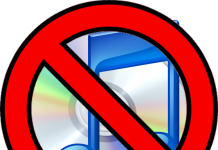 From an article in the Chronicle of Higher Education: The annual meeting of the Association of American Publishers reached one consensus: Fighting online piracy with legislation is not the way to go. However, they agree that online piracy must be fought and controlled. With what?
From an article in the Chronicle of Higher Education: The annual meeting of the Association of American Publishers reached one consensus: Fighting online piracy with legislation is not the way to go. However, they agree that online piracy must be fought and controlled. With what?
That seems to be the question… still.
Cary Sherman, the chairman and chief executive officer of the Recording Industry Association of America, agreed that “legislation brings out the worst in people” and that voluntary agreements are more flexible. After “the digital tsunami” of opposition that brought down SOPA and PIPA, he said, it’s hard now to imagine “just moving to legislation without first building consensus.”
The article seems to suggest that the major factions concerned with online piracy were in the movie, music and software industries; but textbook and library interests were present in the discussions (which were held at McGraw Hill’s headquarters). Copyright as an institution was supported, and most wanted stronger protections over their intellectual property. “We need copyright laws that reflect the digital reality,” stated Jim Neal, vice president for information services and university librarian at Columbia University.
The SOPA and PIPA failures were obviously sore spots with the participants.
At a panel on “Content Industries in Digital Transformation,” speakers talked frankly about the public outpouring of opposition that derailed the proposed legislation. The bills, known as SOPA and PIPA, “blew up on us after months of detailed work,” said Tom Allen, the president of the publishers’ association, which had supported the legislation. “We’ve learned a few lessons along the way.”
But despite the fact that everyone agreed that “no one likes legislation,” and everyone agreed that something must be done, there seemed to be no other ideas on how online piracy could be curtailed. It seems that, now that the stick has been broken, no one can figure out what kind of carrot might do the job. Or maybe they can’t stop looking for a replacement for the stick.


































Their understanding of the purpose of copyright, the importance of fair use and the temporary nature of “intellectual property” (in the US at least) is heavily skewed by wishful thinking that is myopically focused upon maximizing profit.
The reason we managed to hold the line this once, on SOPA/PIPA, is that thanks to the influence of the industries enumerated above, it was completely insane. If publishers feel disgruntled about wasted effort, they should look at why it was so out of control. To me, it looks like another case of the RIAA & MPAA feeling entitled to impose unlimited costs on everyone else, to enforce their own twisted kleptocratic morality.
[One example: selling CDs as “all rights reserved”, claiming that they won’t sue me for ripping it to hard disk, but refusing to actually put that in writing in any way that would make it enforceable – here in the UK, where there _isn’t_ a fair use exemption for this type of copying. Another example: mind-numbingly long un-skippable trailers & copyright notices on hi-definition video discs.]
The only thing the publishers are admitting here, is that they can’t match the efforts of the RIAA & MPAA on legislation. They, like everyone else, will have to live with whatever the biggest fish manage to push into law and/or through the courts.
@Frank: Likely true; however, the opposition’s understanding of copyright is so heavily skewed by desires of utopian free-world ideals and entitlement that, at the very least, the two should have simply zeroed each other out. At any rate, it was more due to the nightmare of enforceability, not intended profits, that killed SOPA and PIPA.
@Alan: Do me a favor and name some of these DVDs with “un-skippable trailers”… I keep hearing about them, and have yet to find one on a single one of my DVDs. In every case, hitting the Menu button jumps past all of them, on every DVD player I have. (Or are they only on Blu-rays? A good reason not to buy them over DVDs, then.)
“Publishers Daily” covers this meeting with a bit more information.
http://www.publishersweekly.com/pw/by-topic/industry-news/trade-shows-events/article/51073-piracy-outreach-twin-themes-at-aap-meeting.html
SOPA and PIPA did not fail due to any technical obstacle to enforceability. It was entirely do-able from a technical standpoint. They failed because it became clear to even the dullest legislators that they were in conflict with fundamental constitutional principles. The entitlement that rights holders (usually not the actual author) feel apparently blinds them to the more important issues in life. The centrist position is at odds with AAP, RIA and MPAA.
@Steven: yes, it’s a feature of Blu-Ray, and not standard-definition dvds. Sorry for being obscure; I should know the word “Blu-ray” by now.
I’m no fan of Amazon’s business tactics, but their powerful, feature-rich ebook ecosystem illustrates what publishers should be doing. Amazon is getting that right and improving what they do quickly.
Pirates can give us the raw text of books, but they can’t be trusted to add enduring features that most readers value. They may not be around six months from now.
Illustration: I can delete ebooks from my Kindle 3 when I have finished reading them, secure in the knowledge that Amazon is not only keeping that book around, but all the notes, bookmarks and underlinings I’ve made. That gives me all the advantages of printed copies (and more) without the hassle of keeping a set of ebook files as I move from computer to computer over the years. It’s almost like owning a physical copy without all the bother of shelves and moving boxes.
In fact, recently when I downloaded a public domain ebook from the Project Gutenberg, I thought to myself, “Wait, if I get the same free ebook from Amazon, my copy and notes with be stay around.” So I went to Amazon and downloaded that same book from them and read it.
Publishers aren’t the only ones who need to take note of the importance of the entire ebook ecosystem they offer their readers. Other ebook retailers need to offer similar features if they want to stay competitive. And it is by that entire ebook ecosystem that they can beat the pirates.